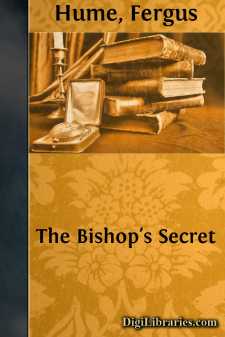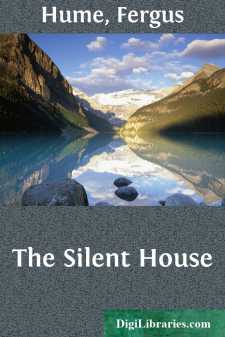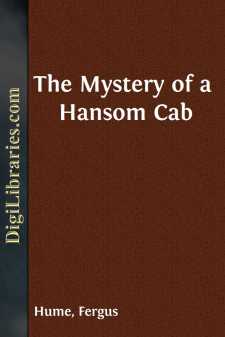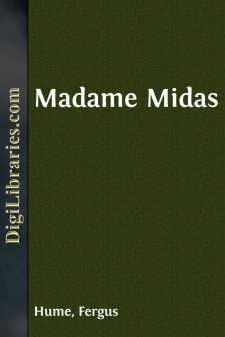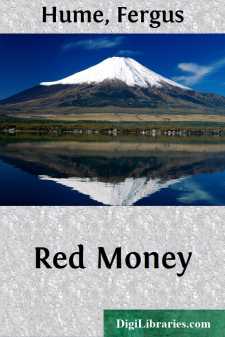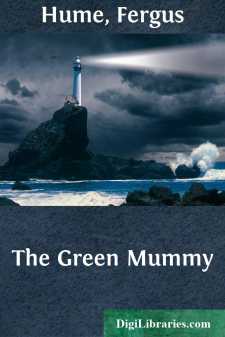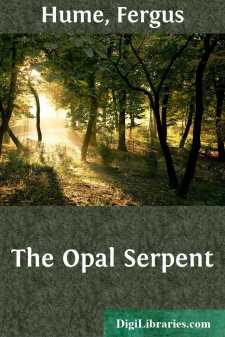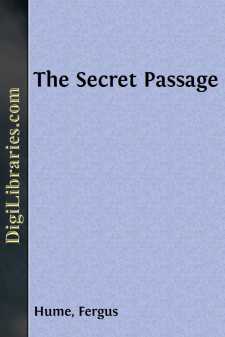Categories
- Antiques & Collectibles 13
- Architecture 36
- Art 48
- Bibles 22
- Biography & Autobiography 813
- Body, Mind & Spirit 142
- Business & Economics 28
- Children's Books 15
- Children's Fiction 12
- Computers 4
- Cooking 94
- Crafts & Hobbies 4
- Drama 346
- Education 46
- Family & Relationships 57
- Fiction 11828
- Games 19
- Gardening 17
- Health & Fitness 34
- History 1377
- House & Home 1
- Humor 147
- Juvenile Fiction 1873
- Juvenile Nonfiction 202
- Language Arts & Disciplines 88
- Law 16
- Literary Collections 686
- Literary Criticism 179
- Mathematics 13
- Medical 41
- Music 40
- Nature 179
- Non-Classifiable 1768
- Performing Arts 7
- Periodicals 1453
- Philosophy 64
- Photography 2
- Poetry 896
- Political Science 203
- Psychology 42
- Reference 154
- Religion 513
- Science 126
- Self-Help 84
- Social Science 81
- Sports & Recreation 34
- Study Aids 3
- Technology & Engineering 59
- Transportation 23
- Travel 463
- True Crime 29
The Bishop's Secret
by: Fergus Hume
Categories:
Description:
Excerpt
PREFACE.
In his earlier works, notably in "The Mystery of a Hansom Cab" and "The Silent House in Pimlico," Mr. Hume won a reputation second to none for plot of the stirring, ingenious, misleading, and finally surprising kind, and for working out his plot in vigorous and picturesque English.
In "The Bishop's Secret," while there is no falling off in plot and style, there is a welcome and marvelous broadening out as to the cast of characters, representing an unusually wide range of typical men and women. These are not laboriously described by the author, but are made to reveal themselves in action and speech in a way that has, for the reader, all the charm of personal intercourse with living people.
Mr. Hume's treatment of the peculiar and exclusive ecclesiastical society of a small English cathedral city is quite worthy of Anthony Trollope, and his leading character, Bishop Pendle, is equal to Trollope's best bishop. The Reverend Mr. Cargrim, the Bishop's poor and most unworthy protegè, is a meaner Uriah Heep. Mrs. Pansey is the embodiment of all shrewishness, and yields unlimited amusement. The Gypsies are genuine—such as George Borrow, himself, would have pictured them—not the ignorant caricatures so frequently drawn by writers too lazy to study their subject.
Besides these types, there are several which seem to have had no exact prototypes in preceding fiction. Such are Doctor Graham, "The Man with a Scar," the Mosk family—father, mother, and daughter—Gabriel Pendle, Miss Winchello, and, last but not least, Mr. Baltic—a detective so unique in character and methods as to make Conan Doyle turn green with envy.
All in all, this story is so rich in the essential elements of worthy fiction—in characterization, exciting adventure, suggestions of the marvelous, wit, humor, pathos, and just enough of tragedy—that it is offered to the American public in all confidence that it will be generally and heartily welcomed.
THE PUBLISHERS.
'ENTER MRS PANSEY AS CHORUS'
Of late years an anonymous mathematician has declared that in the British Isles the female population is seven times greater than the male; therefore, in these days is fulfilled the scriptural prophecy that seven women shall lay hold of one man and entreat to be called by his name. Miss Daisy Norsham, a veteran Belgravian spinster, decided, after some disappointing seasons, that this text was particularly applicable to London. Doubtful, therefore, of securing a husband at the rate of one chance in seven, or dissatisfied at the prospect of a seventh share in a man, she resolved upon trying her matrimonial fortunes in the country. She was plain, this lady, as she was poor; nor could she rightly be said to be in the first flush of maidenhood. In all matters other than that of man-catching she was shallow past belief. Still, she did hope, by dint of some brisk campaigning in the diocese of Beorminster, to capture a whole man unto herself.
Her first step was to wheedle an invitation out of Mrs Pansey, an archdeacon's widow—then on a philanthropic visit to town—and she arrived, towards the end of July, in the pleasant cathedral city of Beorminster, in time to attend a reception at the bishop's palace. Thus the autumn manœuvres of Miss Norsham opened most auspiciously.
Mrs Pansey, with whom this elderly worshipper of Hymen had elected to stay during her visit, was a gruff woman, with a scowl, who 'looked all nose and eyebrows.' Few ecclesiastical matrons were so well known in the diocese of Beorminster as was Mrs Pansey; not many, it must be confessed, were so ardently hated, for there were few pies indeed in which this dear lady had not a finger; few keyholes through which her eye did not peer. Her memory and her tongue, severally and combined, had ruined half the reputations in the county. In short, she was a renowned social bully, and like most bullies she gained her ends by scaring the lives out of meeker and better-bred people than herself. These latter feared her 'scenes' as she rejoiced in them, and as she knew the pasts of her friends from their cradle upwards, she usually contrived, by a pitiless use of her famous memory, to put to rout anyone so ill-advised as to attempt a stand against her domineering authority. When her tall, gaunt figure—invariably arrayed in the blackest of black silks—was sighted in a room, those present either scuttled out of the way or judiciously held their peace, for everyone knew Mrs Pansey's talent for twisting the simplest observation into some evil shape calculated to get its author into trouble. She excelled in this particular method of making mischief. Possessed of ample means and ample leisure, both of these helped her materially to build up her reputation of a philanthropic bully. She literally swooped down upon the poor, taking one and all in charge to be fed, physicked, worked and guided according to her own ideas. In return for benefits conferred, she demanded an unconditional surrender of free will....


